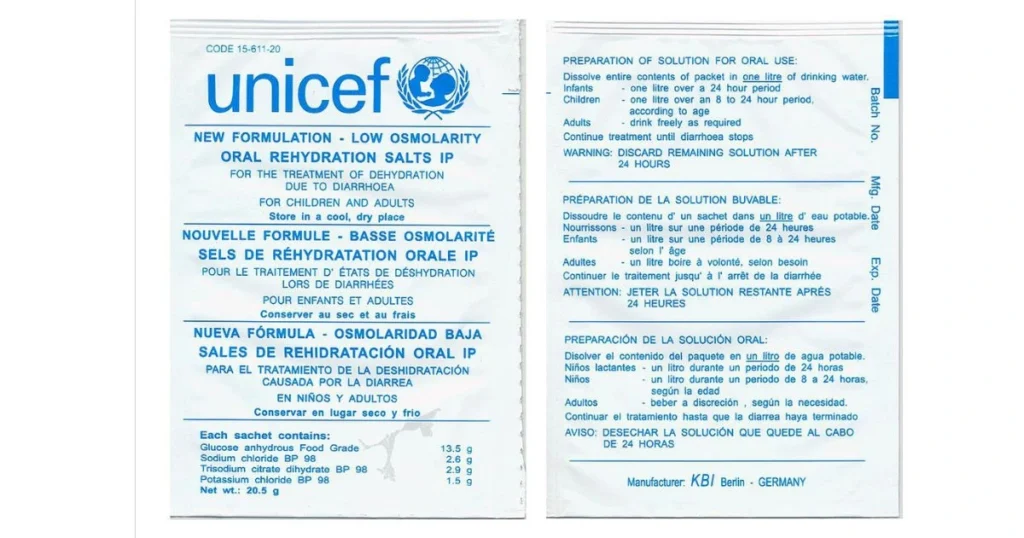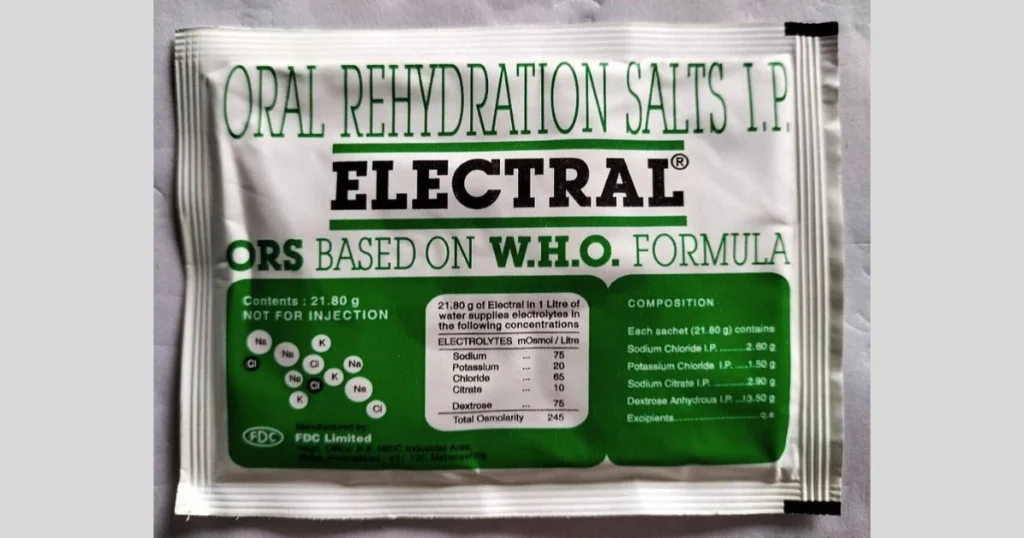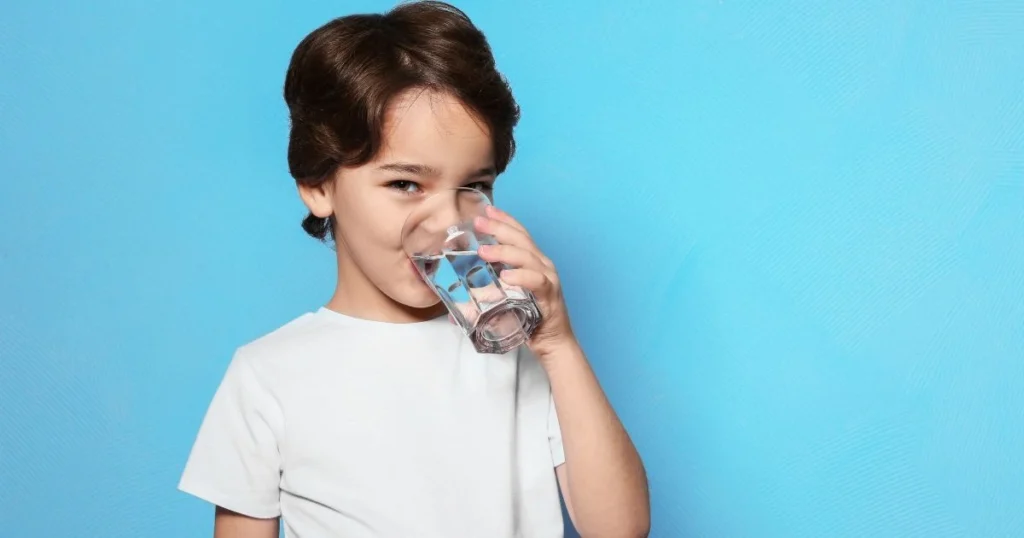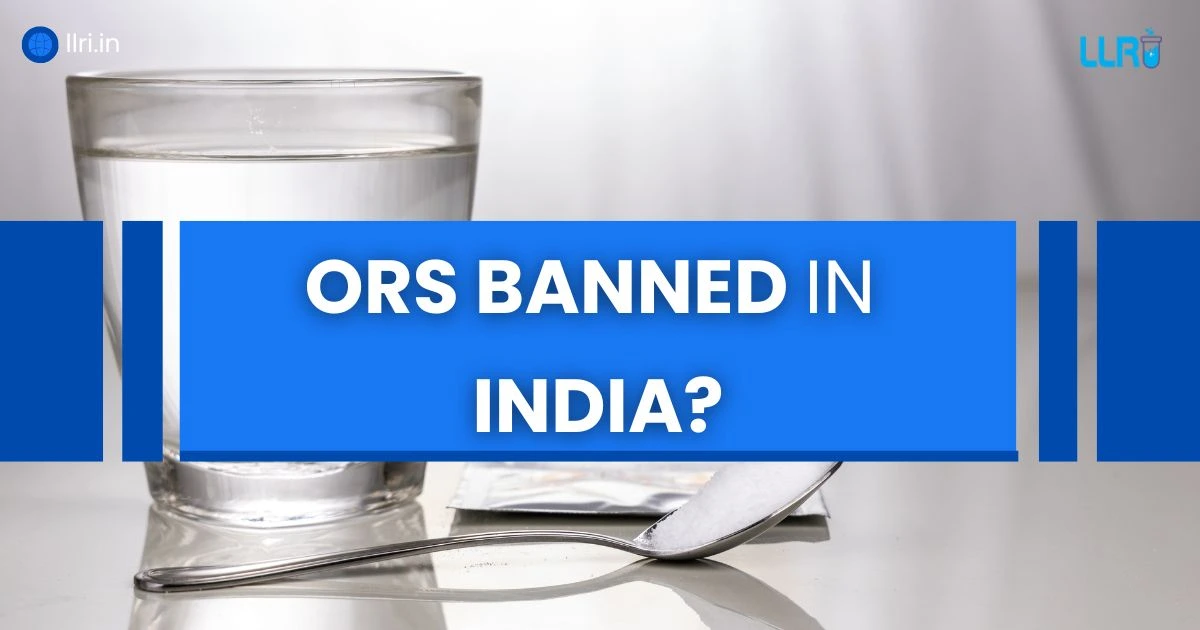Why Is ORS Banned In India: When you hear or read about “ORS banned in India”, many people get confused – is it true, and what does it really mean? In this blog, we’ll explain everything clearly, what happened, why it happened, and how it affects you when choosing the right oral rehydration solution for adults or children – so you won’t have to be confused by the plethora of misinformation out there!
Before the ORS banned in India order, many energy drinks and fruit beverages used the word “ORS” in their product names, even though they didn’t meet WHO’s formula. After complaints, the FSSAI banned such labelling, calling it false, deceptive, and misleading.
Now, these companies cannot use “ORS” anywhere in their product names or advertisements unless their formula truly qualifies as a medical Oral Rehydration Solution.
Latest Update: Delhi HC Temporarily Pauses Ban on Fake ORS Drinks
The Delhi High Court has temporarily stayed the FSSAI’s ban on non-compliant “ORS” drinks after ORSL filed a petition citing unsold stock worth ₹180 crore. The ban, prompted by an eight-year campaign from a pediatrician, prohibits the use of the term “ORS” on products that don’t meet WHO’s oral rehydration solution standards. Many such drinks were found to contain excessive sugar and inadequate electrolytes, potentially worsening dehydration in children. The court will make a final decision after reviewing the case.

What Exactly Is “ORS”?
First, let us break down the term:
- The “ORS full form in medical” is Oral Rehydration Solution (or sometimes “Oral Rehydration Salts”).
- Oral Rehydration Solution (ORS) is a simple mixture of clean water, salts (sodium, potassium) and glucose. It is used to treat dehydration caused by diarrhoea, vomiting, or excessive sweat.
- It is widely considered one of the most important low-cost treatments in public health globally.

So, whenever you see “ORS” in a medical context, it refers to this type of solution used for rehydration.
When we ask “ORS banned or not”, we are really asking: Is the production, sale, or labelling of ORS affected by recent regulatory changes in India? The short answer: Not the genuine medical ORS, but there is a change in how the term “ORS” can be used for other products.
According to the World Health Organization (WHO), ORS saves millions of lives every year, especially among children under five. In India’s hot climate, it is also widely used as an oral rehydration solution for adults who experience dehydration from long work hours or illness.
Why Did FSSAI Ban Fake ORS Drinks?
In October 2025, the Food Safety and Standards Authority of India (FSSAI) issued a strong order banning the use of the term “ORS” on food and beverage products that do not match WHO’s medical formula.
Earlier, FSSAI had allowed some drinks to use “ORS” with a small disclaimer, but many companies continued misleading consumers. A Hyderabad paediatrician, Dr Sivaranjini Santhosh, fought for eight years against such fake ORS products and her persistence finally led to this nationwide action.
“The use of the term ‘ORS’ in product names or advertisements is now considered misleading under the Food Safety and Standards Act, 2006.” – FSSAI, 2025
So, the ORS banned in India headline does not mean that real ORS is illegal, it means fake “ORS” drinks are no longer allowed.

ORS Banned in India: Is ORS Banned or Not?
Let’s make it clear:
- No, genuine medical ORS is not banned.
- Yes, fake drinks marketed as ORS are banned.
Products that don’t meet the WHO formula or contain excess sugar are now treated as misbranded and can attract strict action under the FSSAI Act. In short, when people say “ORS banned in India”, they are talking about these misleading drinks, not the real oral rehydration solution available in medical stores.
How to Identify Fake ORS?
Fake ORS refers to packaged drinks or beverages that pretend to be Oral Rehydration Solutions (ORS) but do not have the correct medical composition as recommended by the World Health Organization (WHO) or the Indian Pharmacopoeia Commission.
These products often:
- Come in tetra packs or bottles and are sold as “ORS drinks” or “hydration boosters.”
- Contain too much sugar and very low levels of electrolytes like sodium and potassium.
- Are marketed misleadingly as suitable for dehydration, though they don’t meet the scientific formula required for medical use.
So, even though they may look safe, taste good, and claim to “rehydrate” you, they are not real ORS.
Real vs Fake ORS – Know the Difference
| Features | Real ORS | Fake ORS |
| Purpose | Medical use to treat dehydration (due to diarrhoea, vomiting, etc.) | Marketed as a general “energy” or “hydration” drink |
| Form | Powder sachet to be mixed with clean water | Ready-to-drink tetra pack or bottle |
| Sugar Content | Controlled and balanced with salts | Often very high sugar |
| Label | Mentions exact amounts of glucose, sodium chloride, potassium chloride, and citrate | Vague ingredients, “electrolytes” mentioned generally |
| Approval | Follows WHO or FSSAI medical formula | No WHO or medical approval |
| Safety | Clinically safe for all ages | Can worsen dehydration in some cases |
Why Fake ORS Is Dangerous?
According to doctors and FSSAI reports, fake ORS products can make dehydration worse instead of treating it.
Here’s why:
- Too much sugar pulls water out of the body cells, worsening dehydration.
- They give a false sense of safety, parents think their child is getting real ORS, but they’re not.
- They can delay proper treatment and increase health risks, especially in children.
Parents were misled by marketing. These drinks not only failed to treat dehydration but sometimes made it worse.
Read More: Kerala Brain Eating Amoeba Outbreak 2025: Symptoms, Causes & Prevention

How To Choose the Best Oral Rehydration Solution?
Here are simple tips for choosing the best oral rehydration solution for you and your family:
- Check the label: The packet should clearly mention sodium chloride, potassium chloride, and glucose in proper proportions.
- Avoid sugary drinks: Many so-called “hydration” beverages are full of sugar and may worsen dehydration.
- Buy from a pharmacy: Always buy from a medical shop instead of a supermarket drink shelf.
- For adults: You can safely use an oral rehydration solution for adults if you have diarrhoea, vomiting, or heavy sweating. The dosage is usually higher than for children.
In emergencies: If ORS is unavailable, mix 1 litre of clean water with 6 teaspoons of sugar and ½ teaspoon of salt, this home-made ORS can help prevent dehydration.

On A Final Note…
Fake ORS = misleading, sugary drink pretending to be medical ORS.
Real ORS = medically approved, electrolyte-balanced formula used for dehydration treatment.
So, when you see “ORS banned in India”, remember, the fake ORS drinks are banned, not the real medical ones.

